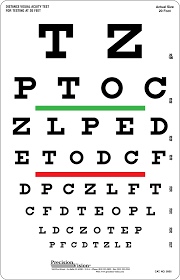The health of your eyes is not something to take for granted, especially as you get older and are more likely to need regular check-ups and possibly even corrective glasses or contact lenses. The eye is an incredibly complex, sensitive organ, reacting to changes in our environment, diet and lifestyle.
Not only do Australians spend increasingly long periods in front of digital screens, we also have high levels of UV rays to contend with for many months of the year.
So how do you find a great Melbourne optometrist for the health of your eyes? We’re glad you asked! Not only are cost and location going to be important considerations, but so too is building a relationship with your optometrist.
While you may be tempted by one of the larger retail chains, you don’t always get the same experience, care and attention to detail as you do with an independent Melbourne optometrist.
Getting a complete picture of your personal health and lifestyle
While an optometrist is obviously focusing on your eyes and current symptoms you’re dealing with, he or she should also take the time to understand everything about your health and lifestyle.
This should include things like taking a family history of eye disease, your working conditions, dietary choices, hobbies or daily activities you enjoy doing, even medications you take as these can sometimes have an impact on eye health.
If you feel rushed during your initial examination or the optometrist isn’t asking the right questions, you should get a second opinion. While they may give you the right prescription, you want the peace-of-mind and confidence that you can get their professional advice on follow-up visits.
What does a thorough eye examination usually involve?
If you are preparing for your first eye examination, there are a number of things your Melbourne optometrist will go through. Generally speaking, an initial examination should take approximately 30 minutes, which won’t include choosing eyewear or contact lenses should you need them.
Here’s a quick snapshot of what you can expect during a comprehensive eye exam:
Accurate vision examination and correction to understand what’s happening with your eyes
Early detection of any eye disease and degeneration, including cataracts, macular degeneration and glaucoma.
Advice for managing eye conditions, such as eye strain, bloodshot eyes and dry eyes.
Check and trial the right prescription contact lenses if you don’t choose glasses.
As we mentioned, make sure you get your optometrist to properly explain your eye test results. There are many technical terms which are sometimes better illustrated with diagrams or high resolution images. You definitely don’t want to walk out of the store and turn to Google for any unanswered questions!
Getting the right advice about choosing a frame you’ll love
While nobody wants to suffer from eye complaints that require a prescription, at least you’ll be able to choose a pair or two of great looking glasses! An experienced optometrist will show you a range of glasses to suit your face, budget and lifestyle.
There are many designer styles in most stores, including European fashion frames, timeless rimless, classic metal and plastic acetate. Modern glasses are generally lightweight, strong, flexible and corrosion-resistant.
Before you purchase your glasses, remember to ask if your optometrist will make any small adjustments or repairs for you if you bring them back. The last thing you want is to spend hundreds of dollars on glasses that don’t sit right, pinch your nose or just feel uncomfortable.
What are the most common eye conditions an optometrist might detect?
You are more than likely visiting an optometrist after noticing symptoms with your eyes. While there are many different eye complaints all with their own particular symptoms, the most common eye conditions are:
Myopia (or nearsightedness), which is when faraway objects look blurry
Hyperopia (or farsightedness), which is when close-up objects look blurry
Astigmatism, which can result in blurry vision because the cornea is not perfectly shaped to direct light into your eye
Presbyopia, which is farsightedness that’s caused by the loss of elasticity of your eye’s lens due to ageing
Macular degeneration, which is the name given to damage in the central portion of retina
Cataracts, which are the formation of cloudy areas in the eye lens and are prevalent as people age
Glaucoma, which is where the eye’s optic nerve is damaged, resulting in a pressure buildup within the fluid of your eye
Diabetic retinopathy, which affects your eyes by causing damage to the blood vessels throughout the light sensitive tissues of the retina
There are other less serious conditions which may not require vision correction or surgery. Dry eye syndrome is a complaint optometrists see on a regular basis. This occurs when your body is unable to produce enough tears to lubricate your eyes.
You might experience a stinging or burning sensation when you have dry eye syndrome, especially in certain situations, such as an air conditioned room or building, looking at a digital screen for long periods without taking breaks, or even regular airplane travel.
Why not book an appointment with Peter Merrett?
If you’re ready to make your first appointment or just want to have a friendly chat, visit Peter Merrett Optometrist.
Peter has been delivering independent eye care in Windsor since 2002 and the locals love him. In fact, the Chapel Street store in Melbourne has been running for nearly 100 years!
We welcome all new and existing patients to our local optometry store and can’t wait to hear from you.

